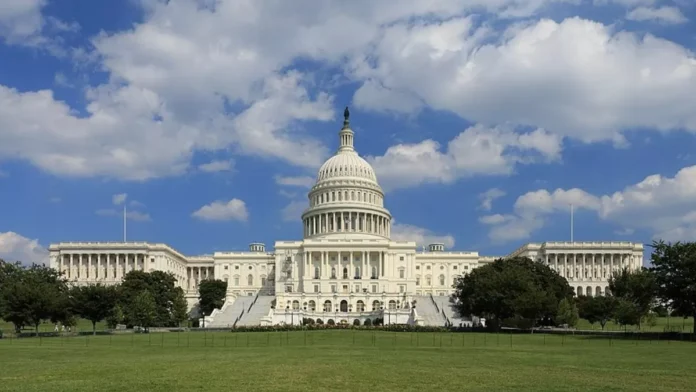On Wednesday evening, the U.S. House of Representatives passed a bill that aims to limit the power of federal district court judges to issue nationwide injunctions. This legislation, if passed by the Senate and signed into law by the President, will mark a significant step towards restoring balance and fairness in our judicial system.
Nationwide injunctions, also known as universal injunctions, are court orders that block a government action from being implemented not just in a specific case, but across the entire country. This means that a single district court judge has the power to halt a policy or executive action, even if it only directly affects a small group of people or a specific region.
While the use of nationwide injunctions is not a new phenomenon, it has become increasingly prevalent in recent years. In fact, during the first two years of the Trump administration, there were more nationwide injunctions issued than in the entire 20th century. This has led to a growing concern that these injunctions are being used as a political tool rather than a legal remedy.
The bill, known as the Injunctive Authority Clarification Act, seeks to address this issue by limiting the scope of injunctions to the parties involved in the case. This means that a judge’s ruling would only apply to the specific individuals or organizations that brought the case before the court, rather than the entire country.
This legislation is a necessary step towards restoring the proper balance of power between the three branches of government. The Constitution clearly outlines the separation of powers, with the judiciary having the authority to interpret the law, not make it. By issuing nationwide injunctions, district court judges are overstepping their bounds and essentially legislating from the bench.
Furthermore, nationwide injunctions have the potential to create chaos and confusion in our legal system. When a single judge can block a policy or executive action nationwide, it creates a patchwork of conflicting laws and regulations. This not only undermines the authority of the executive branch, but it also creates uncertainty for individuals and businesses who may be affected by these injunctions.
The Injunctive Authority Clarification Act is not about limiting the power of the judiciary, but rather about ensuring that our judicial system operates as it was intended. It is about preventing the abuse of power and restoring fairness and balance in our courts.
Opponents of this bill argue that it will limit access to justice for those who are unable to bring a case before the court. However, this is not the case. The bill still allows for nationwide injunctions in cases where there is a threat of irreparable harm to a specific group of people. It simply ensures that these injunctions are not used as a blanket solution for every case.
In addition, this legislation does not prevent district court judges from issuing injunctions that apply to their specific district. It only limits their power to issue nationwide injunctions, which are often used as a political tool to block policies that the judge disagrees with.
The passage of this bill in the House is a positive step towards restoring balance and fairness in our judicial system. It is a testament to the commitment of our elected representatives to uphold the principles of our Constitution and ensure that the separation of powers is respected.
It is now up to the Senate to pass this bill and for the President to sign it into law. We urge our senators to put aside political differences and support this important legislation. It is time to put an end to the abuse of nationwide injunctions and restore the proper balance of power in our government.
In conclusion, the Injunctive Authority Clarification Act is a necessary step towards ensuring that our judicial system operates as it was intended. It will prevent the abuse of power by district court judges and restore balance and fairness in our courts. We applaud the House for passing this bill and urge the Senate to do the same. Let us work together to uphold the principles of our Constitution and protect the integrity of our judicial system.

